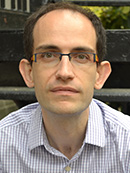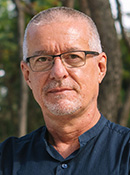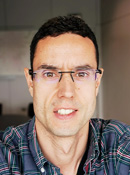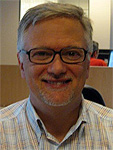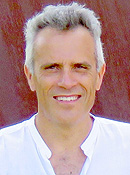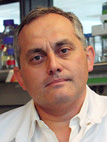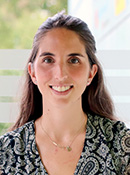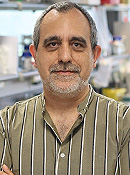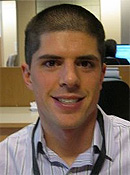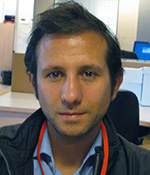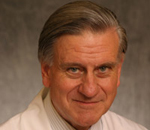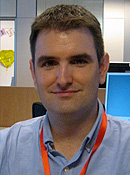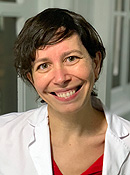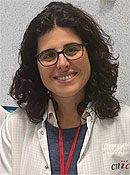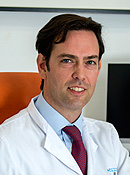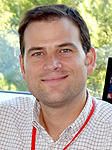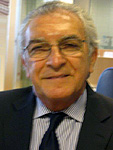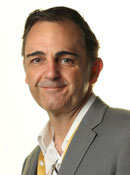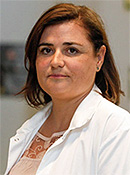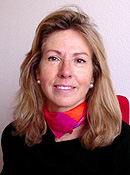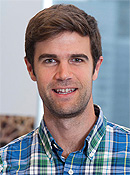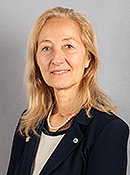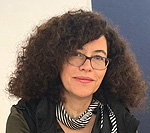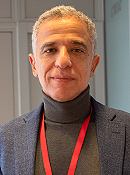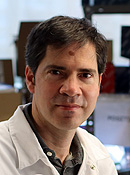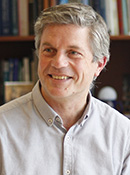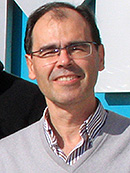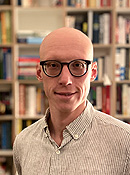We are a multidisciplinary team of scientists who investigate how mechanical forces determine muscle function at the molecular, cellular, tissue and organismal levels. Our motivation is to improve the understanding, diagnosis and treatment of cardiovascular and musculoskeletal diseases. At the same time, we train scientists, awake vocations in science and contribute to strengthen and disseminate the scientific culture.
Cardiovascular disease (CVD) is the main health and socio-economic problem worldwide, in part due to the progressive aging that the world population is experiencing. Atherosclerosis and heart failure contribute significantly to CVD-related morbimortality in the elderly.
The laboratory’s main objective is to obtain a better understanding of how distinct signalling pathways control the different context-dependent behaviours of the diverse cell types that compose the vascular system and that are essential for new blood vessel formation.
Our research group investigates the mechanisms by which atherosclerosis forms.
The Multidisciplinary Translational Research (MTCR) Group of CNIC is a platform for innovative knowledge generation in health and disease.
We study how signals and downstream genetic networks regulate heart development, aiming to understand congenital heart disease and cardiomyopathies, eventually guiding strategies for heart repair.
The interplay of cells and tissues with mechanical forces from their environment emerges as a novel key aspect of both organismal homeostasis and disease.
The group focuses on studying cardiometabolic diseases using advanced imaging techniques to understand how cardiometabolic risk factors affect different organs.
Our group investigates the molecular mechanisms that regulate oxidative phosphorylation (OXPHOS), the main bioenergetic system in eukaryotic cells.
Our group focuses on cardiovascular disease prevention and health promotion. We work on multidisciplinary programs in close collaboration with schools and communities, targeting both children and adults
The Advanced Development in Arrhythmia Mechanisms and Therapy (ADAM-T) laboratory focuses on investigating from a multidisciplinary approach, the mechanisms underlying cardiac arrhythmias that occur in highly prevalent cardiovascular diseases in the general population, as well as in specific subsets at particular risk of sudden cardiac death.
Our group has developed research applications for noninvasive, high-resolution and high-sensitivity imaging technologies to support translational research and population studies in preclinical atherosclerosis.
Our laboratory investigates the interplay between the hematopoietic and the cardiovascular systems in the context of cardiovascular disease, with a particular focus on the pathophysiology of atherosclerosis, the underlying cause of most heart attacks and strokes.
Our laboratory focuses on the study of myocardial diseases leading to heart failure (HF) and pulmonary hypertension (PH) from a translational perspective ranging from molecular studies and experimental models to multicenter clinical trials.
Our group uses a wide range of non-invasive imaging techniques to study cardiovascular health and the transition from early subclinical damage to established cardiovascular disease.
Our group focuses on investigating from a multidisciplinary approach, the implication of genetics in cardiomyopathies. We perform translational research from humans to mice and look to improve how patients are diagnosed and treated.
Our laboratory is interested in the biology of inflammation and immune cells.
Our group focuses on 2 main areas of interest: (1) the causes, mechanisms, and treatment of different types of myocardial injury; and (2) precision medicine strategies for the prevention of atherosclerotic cardiovascular disease (ASCVD) based on the identification of early silent disease.
Our laboratory investigates the cellular and molecular mechanisms of arrhythmias with the objective to generate novel treatments that can prevent sudden cardiac death.
Our lab studies the molecular mechanisms that regulate the development of heart failure.
Our group seeks to study the therapeutic and diagnostic potential of T cells, their immunomodulatory receptors and microRNAs, in the management of cardiovascular disease (CVD) and in the development of precision medicine tools.
The epicardium is a unicellular epithelial layer of that envelops the myocardium. It derives from the proepicardium (PE), a group of cells that arises at the inflow tract of the forming heart. PE cells attach to the myocardium and form an epithelial covering, called the epicardium.
The interest of our group is cerebrovascular disease, one of the leading causes of death and disability, with an increasing prevalence due to the ageing of the population.
Formulation of drugs into nanoparticles can potentially improve their pharmacokinetics, stability and toxicity profile, thereby augmenting their therapeutic index. In addition, nanomedicines can be designed to selectively deliver their cargo to a specific tissue or cell population.
Sudden cardiac death (SCD) is a leading cause of death in western countries: coronary artery disease is the major cause of SCD in older subjects while inherited arrhythmogenic diseases are the leading cause of SCD in younger individuals.
We are interested in various aspects of B cell biology and the antibody immune response, in particular in the context of atherosclerosis and cardiovascular disease.
The Myocardial regeneration via cardiomyocyte cell cycle regulation lab joined the CNIC in November 2022.
The Computational Systems Biomedicine Lab develops multimodal artificial intelligence approaches to advance biomedical research, with a particular focus on cardiovascular disease.
Our lab studies dendritic cells (DCs) and macrophages, key immune sentinels that regulate immunity, inflammation, and tolerance.
We are interested in understanding the cellular and molecular bases of cardiovascular embryonic development and in finding ways to reactivate these mechanisms for the promotion of adult heart regeneration.
Our group works on the development of high-throughput quantitative approaches for the dynamic analysis of the deep proteome, which are being applied to basic and translational projects in the cardiovascular field.
Our group investigates novel regenerative therapies for heart failure
